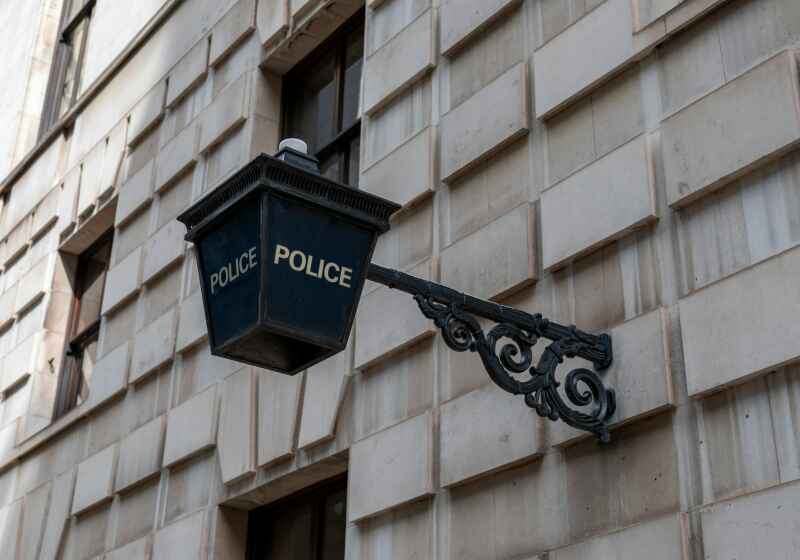CST Blog
Ayatollah Fadlallah: obituary of an antisemite
7 July 2010
Hezbollah's al-Manar TV has published an obituary of Grand Ayatollah Muhammed Hussein Fadlallah, who died in Lebanon on Sunday, and it makes for eye opening reading. According to al-Manar, Fadlallah encouraged suicide bombing, including against Israeli women and children; believed in a Zionist conspiracy to stretch Israel's borders from the Nile to the Euphrates; and denied the Holocaust.
Dubbed by the media as the Spiritual Leader of the Islamic resistance Hezbollah, in Lebanon, Ayatollah Mohammed Hussein Fadlullah inspired the leaders for the resistance group, and served as a highly influential beacon of truth for all the oppressed peoples of the world.
From the pulpit of the Imam Rida mosque in the Bir al-Abd neighborhood (Beiruts southern suburb), Sayyed Fadlullahs sermons gave shape to the political currents among mainly the Muslim Shiite sect, from the latter half of the 1980s till the last days of his life.
?
The Israeli invasion of Lebanon in June 1982 was a watershed event for the Lebanese, mostly the Shiites living in the south, and the public career of Sayyed Fadlullah. The beginning of Hezbollah as an armed resistance movement dates back to that Israeli invasion. What martyrdom is greater than making yourself a human bomb detonating it among the enemy? What spiritualism is greater than this spiritualism in which a person loses all feeling of his body and life for the sake of his cause and mission?This quotation and many others fumed the flame of the resistance ideology.
He supported the ideals of Iran's Islamic Revolution and advocated the corresponding Islamic movement in Lebanon. In his sermons, he called for armed resistance to the Israeli occupations of Lebanon, the West Bank, and the Gaza Strip, along with opposition to the existence of Israel.
He once said that the slogan "land for peace was a betrayal of Palestinian blood and of the sacred cause of Palestine."
Israel poses a great danger to our future generations and to the destiny of our modern nation, especially since it embraces a settlement-oriented and expansionist idea that it has already begun to apply in occupied Palestine and it is extending and expanding to build Greater Israel, from the Euphrates to the Nile, Sayyed Fadlullah said in one of his lectures.
Sayyed Fadlullah often explains that Judaism, Christianity and Islam were all Divine religions, however he always differentiated between a Jew anywhere in the world and another Jews who comes to Palestine and take part in the occupation of this Arab land.
All of Palestine is a war zone and every Jew who unlawfully occupies a house or land belonging to a Palestinian is a legitimate target. There are no innocent Jews in Palestine. They kill many of our women, children, and elderly people. They destroy our homes. They confiscate our water and freedom.
In an interview with Al-Manar TV on March 21, 2008, Sayyed Fadlullah stated:
The Hebrew state is preparing to celebrate its 60th anniversary 60 years since it plundered Palestine - in a festival, which will be attended by the countries of the world, most of which still support the Zionist state and consider the resistance movement to be terrorism. This is what led German Chancellor Merkel to visit that plundering country, which extorted and continues to extort Germany, using as a pretext the German Hitlerist-Nazi past, and the placing of the Jews in a holocaust. Zionism has inflated the number of victims in this holocaust beyond imagination.
In other words, the very quotes that opponents of Hezbollah would cite as evidence of Fadlallah's extremism, antisemitism and support for terrorism, are the quotes that Hezbollah provides to demonstrate his greatness. It is hard to imagine a clearer example of how murderous rhetoric against Jews is not just acceptable for Hezbollah (and presumably fits what they think their readership will enjoy), but is actively promoted by them. Yet this subject is absent from many obituaries in Western newspapers, and only glanced at in others. Take, for example, the Guardian, the BBC, the Financial Times, the Scotsman and the Daily Telegraph; while most mention his support for suicide bombings, his views are couched in terms that describe him as "a fierce critic of the United States and Israel" or "a fiery proponent of Irans Shia Muslim revolution and of Hizbollahs armed fight against Israel".
Fadlallah's distinction between Jews inside and outside Israel is not much of a consolation. Firstly, because the fact he was willing to sanction the murder of every Israel Jew (but not Israeli non-Jews) is still a form of genocidal antisemitism. (If a French demagogue called for the murder of every French Jew, but said that he did not want to see Jews in other countries killed, nobody would baulk at calling that person an antisemite). Secondly, because in the 1980s and 1990s Hezbollah did use murderous terrorism as a tactic against Jewish communities around the world, most infamously killing 85 people in Argentina's AMIA Jewish community building in 1994, so in as much as Fadlallah's ideas influenced Hezbollah's "resistance", their actions were not limited to killing Jews only in Israel.
Several obituaries in Western media note the contrast between Fadlallah's 'liberal' views on some social issues or his opposition to 9/11 and al-Qaeda's global jihad on the one hand; and on the other, his unbending desire to see Israel destroyed and his belief that every Israeli man, woman and child was a legitimate target for suicide bombers. When you read his views about Jews and Israel in detail, it is hard to avoid the conclusion that this inconsistency is explained, at least in part, by antisemitism.
This dissonance between Western and Islamist interpretations has been noted before. Barry Rubin called this a "Clash of Perceptions", when looking at how photographs of injured Israeli soldiers on the Mavi Marmara were received differently in Turkish and Western media. I wrote yesterday about the contrasting narratives of leftists and Islamists involved in the Gaza flotilla. Nowhere is this clash of perceptions more obvious than in the inability, or refusal, of Western commentators to recognise antisemitism, or to accept it as a relevant framework for analysing the behaviour of actors who are hostile to Jews, Zionism or Israel.

